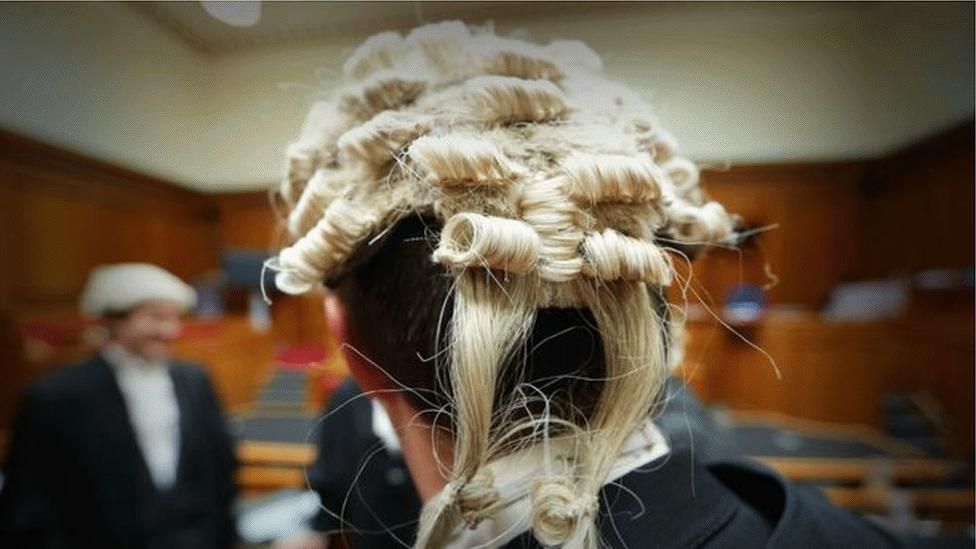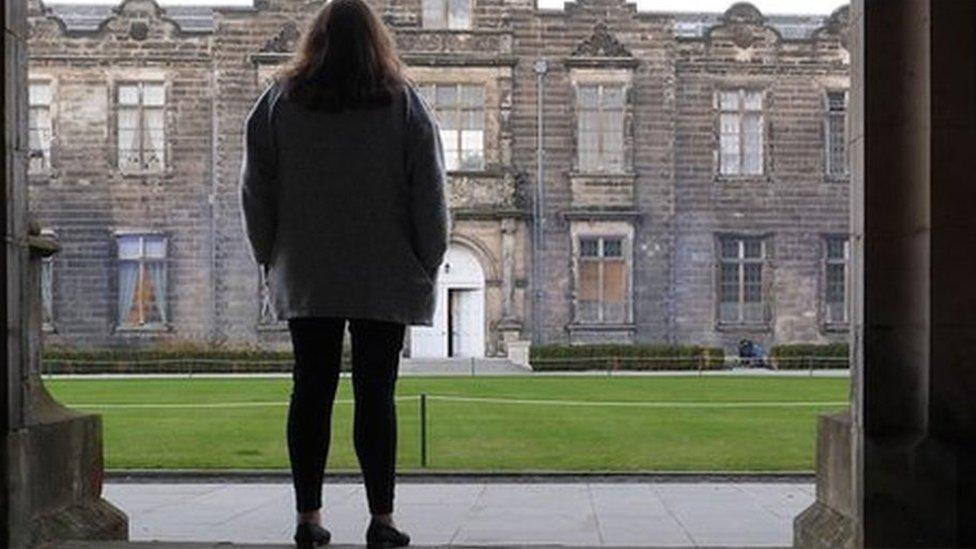What is Scotland's not proven verdict?
- Published

Plans for sweeping reforms to Scotland's justice system include the scrapping of the controversial not proven verdict.
It is one of three verdicts that can be returned in a criminal case in Scotland, alongside guilty and not guilty.
What is not proven?
There is no specific definition of the not proven verdict, or the difference between it and not guilty.
The legal implications of a not proven verdict are exactly the same as a not guilty verdict - the accused is acquitted and is innocent in the eyes of the law.
It is seen by some as offering additional protection to the accused - but critics argue that it is confusing for juries and the public, can stigmatise an accused person by appearing not to clear them, and fails to provide closure for victims.
A study published in 2019 found removing the not proven verdict might incline more jurors towards a guilty verdict in finely balanced trials.
It also highlighted inconsistent views on the meaning of not proven and how it differed from not guilty.
What is its history?

In 2017, Prof James Chalmers and Prof Fiona Leverick published a blog post looking at its history, external.
They said there was a common misconception that not proven was the original verdict of acquittal in Scots law and that not guilty was added later.
They said that this was not the case - although the not proven verdict was now used for a very different purpose then the one for which it was introduced.
In 2015, a review by Lord Bonomy said there was anecdotal evidence that jurors "mistakenly" thought that a not proven verdict left open the possibility of a retrial.
Why are there calls for change?
There have been a number of calls to abolish not proven in recent decades, often prompted by families of victims who have been left aggrieved by what they perceive as an unfair verdict.
Campaigners against the verdict were galvanised by the case of Miss M - a woman who successfully sued a man cleared of raping her.
Stephen Coxen was ordered to pay £80,000 in damages after a judge ruled he raped the woman after a night out in St Andrews. He later declared himself bankrupt.
Mr Coxen had denied the charges and in November 2015 a jury found the criminal case against him not proven.

Stephen Coxen had denied the rape charges against him and the case was found not proven in a criminal court
The civil case, heard in 2018, was understood to be the first of its kind in Scotland.
Civil cases require a lower standard of proof than criminal cases, with judgements made on the balance of probabilities rather than beyond reasonable doubt.
Miss M met First Minister Nicola Sturgeon the following year and asked her to back an end to not proven. Humza Yousaf, who was justice secretary at the time, had said he was open-minded about calls to change the verdict system.
Ahead of the 2021 Scottish Parliament election, Ms Sturgeon said it was time to consider scrapping the verdict - at the time there was a growing political consensus backing abolition.
She said she had changed her view on the matter because of "mounting evidence" that it was linked to low conviction rates in rape and sexual assault trials.
A consultation opened in December that year which also gave consideration to jury size and the majority required for conviction and corroboration.
It gathered views from the public, legal professionals and those with experience of the justice system.
The results, published in July 2022, showed that 62% of the 194 responses were in favour of scrapping the controversial verdict.
However, the Law Society of Scotland said it had "deep concern" the plans would increase the risk of miscarriages of justice.
Related topics
- Published26 April 2023

- Published6 September 2022

- Published4 December 2019
